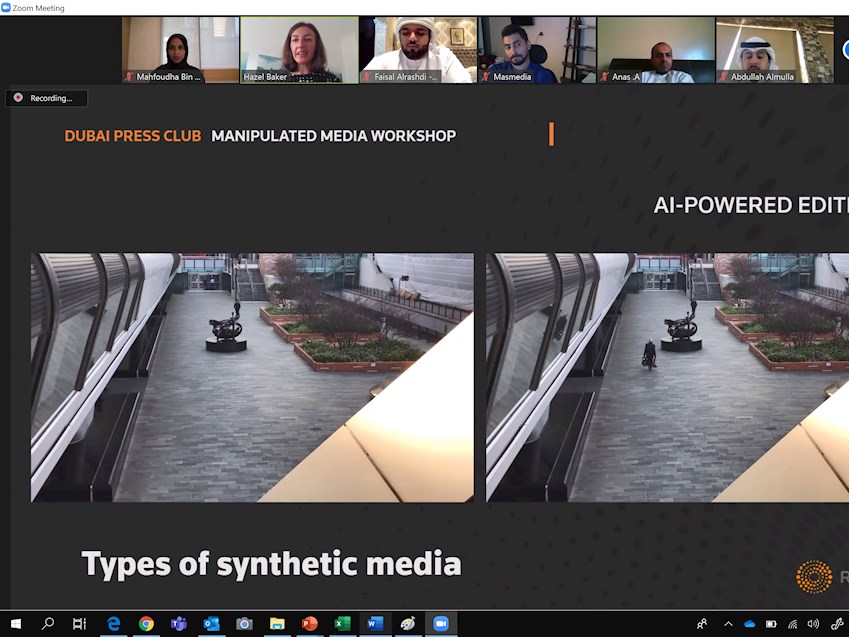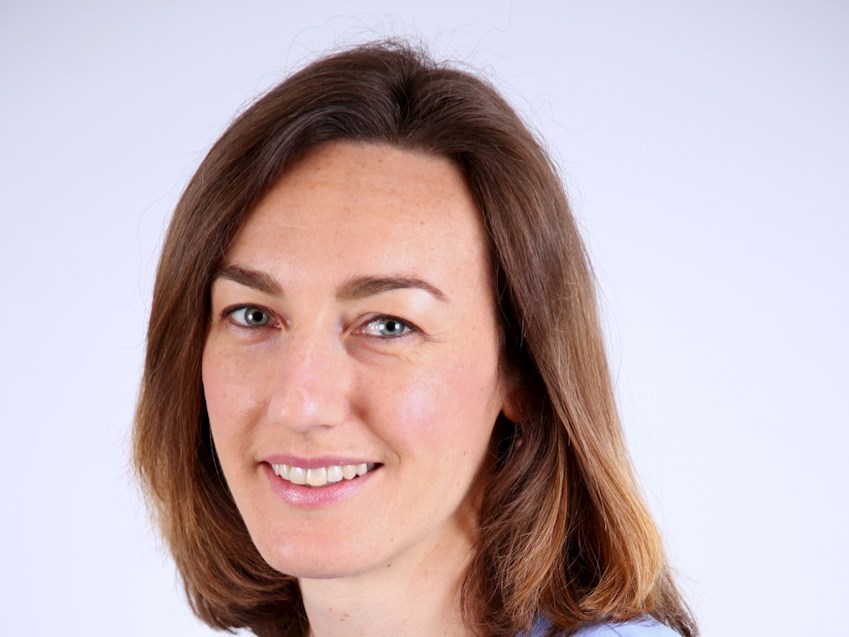August 18, 2020
DPC and Reuters conduct workshop on detecting manipulated media
DPC and Reuters conduct workshop on detecting manipulated media
Local and regional journalists participate in virtual session
The Dubai Press Club, in collaboration with Reuters, conducted a virtual workshop to train journalists on detecting fake news and manipulated media.
Titled ‘Tackling Manipulated Media: How Newsrooms Can Combat Deepfakes’, the workshop was based on an award-winning Reuters course on manipulated media. The workshop aimed to help newsrooms analyse videos and pictures on social media and develop a framework for verification. More than 60 media professionals based in the UAE and abroad tuned in to the session, which was led by Hazel Baker, Reuters Head of User-Generated Content (UGC) Newsgathering.
Maitha Buhumaid, Director of DPC, said: “We are keen to partner with global media industry leaders like Reuters to offer training programmes to help journalists identify manipulated media and authenticate news from different sources. Using real world examples and hypothetical scenarios based on Reuters’ experience in dealing with misinformation, the workshop outlined techniques to identify fake news. It also provided insights into the rapidly evolving technology being used to both create and detect manipulated media.”
Buhumaid added that DPC regularly works with various media partners to improve the quality of media content in the region while also enabling news organisations to stay abreast of modern tools used in the field. “The workshop is part of a series of virtual events organised by DPC to support regional media development even in the current environment. This session had a particular focus on ‘deepfakes', a form of manipulated media, and its role in spreading rumors,” she said.
Hazel Baker, Reuters Head of UGC Newsgathering, said, “Reuters is deeply committed to stopping the spread of misinformation and presenting our manipulated media course via a virtual workshop for the UAE media community was an invaluable opportunity to discuss aspects of verification.”
The spread of inaccurate and misleading information has become a significant and growing problem around the world. It poses as a major challenge for journalists and is a source of alarm for governments, institutions and individuals globally, Baker told participants in the session.
Baker pointed out that some of the most insidious and widely shared misinformation comes in the form of manipulated video, pictures and audio. “At Reuters News Agency, we have seen and rejected large amounts of misleading material,” she said.
The workshop also discussed emerging forms of manipulated media - synthetic media or 'deepfakes' - which pose new authentication challenges. Journalists learned about how newsrooms can better equip themselves to handle such misinformation and verify and publish genuine content from third-party sources.








